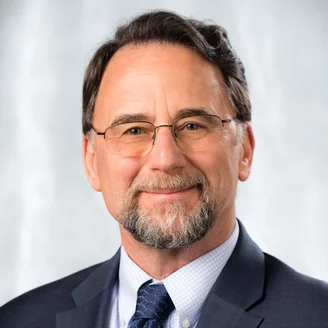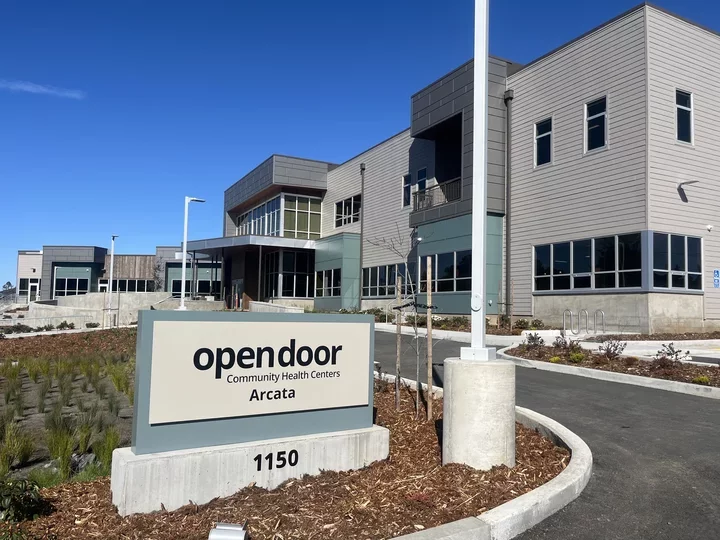With today’s narrow passage by the U.S. House of Representatives of H.R. 1, President Donald Trump’s multitrillion-dollar package of tax cuts and spending, the president’s so-called “One Big, Beautiful Bill” awaits only his own signature before becoming law.
Among its many projected impacts — which include adding at least $3.3 trillion to the nation’s debt over the next decade — the bill is expected to have a dramatic impact on the nation’s health care. It includes sweeping cuts to Medicaid that are projected to result in 8.7 million people losing Medicaid coverage and 7.6 million people losing insurance altogether over 10 years, according to initial estimates from the nonpartisan Congressional Budget Office.
The Outpost reached out to several local organizations and health care professionals in hopes of getting a better understanding of what the local impacts could be. We spoke with Tory Starr, the chief executive officer of Open Door Community Health Centers, and received statements from Connie Beck, director of the Humboldt County Department of Health and Human Services, as well as Providence Health & Services, Partnership HealthPlan and the County Welfare Directors Association.
Requests for comment from SoHum Health, Mad River Community Hospital and the K’ima:w Medical Center were not returned by the time of this post’s publication.
Starr was the only person we were able to speak with at length. He said that with approximately one third of all Californians covered by Medi-Cal (the state’s version of Medicaid), the impacts across the state will be significant.
Open Door is the largest provider of obstetrics and primary care in both Humboldt and Del Norte counties, and Starr said that a little over half of the organization’s patients are on Medi-Cal.
“Because we’re in a rural area, many other practices in the community over time have closed,” he said. “There’s not many of us left doing this work.”
While Starr believes the health care consequences of Trump’s bill will be profoundly negative, he described the contents of the legislation as “fairly ingenious.”
“Republicans tried to repeal Obamacare [the Affordable Care Act] the first time Trump was in office; this time they got smarter,” Starr said. “Now they’re just defunding it. So they learned their lesson, and they’ve done a really good job because they say they’re not cutting any benefits but what they’re doing is making it really hard for people to access them. It’s pretty ingenious and disturbing.”
By way of example, Starr said the bill will require people to apply for Medi-Cal twice per year instead of just once — “and if you’ve ever filled out any government forms, you know it’s not easy,” he said.
Those applications will have to be processed by counties and then sent on to the state for approval — “so you just doubled the workload for the county and state during times of shrinking budgets,” Starr explained.
Beck confirmed this in her statement while also noting the additional requirements people will face to qualify for Medi-Cal coverage, including stricter work requirements and income eligibility:
This is a tremendous cost-shift to states and counties. We’re going to have to stand up whole new systems to verify that people are working at least 80 hours a month to keep their Medi-Cal coverage, as well as verify income eligibility every six months, instead of annually.
These changes will start January 2027. Just under a year and half from now, and there’s only $100 million in grants to states included in the bill for this new workload. To give you some perspective, Georgia spent $50 million on upgrading their IT systems to implement their Medicaid work requirements. So, this is a big hole in the state budget.
Locally, 58,000 people are enrolled in Medi-Cal and about 24,000 will be subject to these new requirements.
The bill also increases the state and county share of administrative costs for CalFresh, which will have a significant impact on state and county budgets. More people will be subject to work requirements for CalFresh benefits too. This will also increase county workload and costs.
I’m afraid that a lot of Humboldt County residents are going to lose Medi-Cal and CalFresh benefits. Not because they’re not working — most are — but because the rules for documenting that work or getting an exemption will be hard to follow. This is a big step backward for our organization’s mission to reduce poverty.
Starr said Republicans justified the stricter eligibility and income rules through oft-repeated messaging about “fraud, waste and abuse,” which he described as misleading but “very politically astute.”
“The vast majority of folks who are served by Open Door and on Medi-Cal are working already, so it’s disingenuous to suggest that all these people are fraudulently freeloading on Medi-Cal or Medicaid,” Starr said. “Other folks have bona fide disabilities or they’re moms with kids. [Politicians] say [such people] won’t get kick off, but they will make them jump through more hoops to stay on, which will result in many not meeting deadlines. They [the politicians] know that’s a way to reduce cost by creating barriers to access.”
Any system as large as the U.S. health care industry — estimated at $4.9 trillion in 2023 — will inevitably have examples of waste and abuse, Starr allowed. But he said the biggest examples come not from patients but from large private insurance companies that require prior authorization for coverage of many procedures and make a practice of denying coverage and forcing customers to appeal.
“That’s waste,” he said. “There’s nothing value-added.”
As for abuse and fraud, it mostly comes from the commercial side of the industry, including medical supply contractors, rather than government programs, Starr said, noting that Medicaid only uses three cents of every dollar on administrative costs while private insurers spend more like 10 to 20 cents per dollar.
“It costs a lot to deny and slow down claims and get prior authorization,” he said.
Like Beck, Starr pointed to the fact that most of the changes enacted by this bill won’t take full effect until late 2026 or later, which is after next year’s mid-term elections. He’s worried that voters’ attention spans won’t last long enough to hold the Legislature responsible for the impacts of this bill, especially since the most severe consequences won’t be felt for years.
“People forget that it was the Affordable Care Act that standardized insurance policies and said that if you want to sell them in the United States … you can’t kick people off or not give them insurance if they have preexisting condition, and you can’t kick kids off until they’re 26,” Starr said.
He believes that Trump’s big bill will take America back to what the country had before the ACA, with potentially millions of people lacking any health care coverage.
“We’re the richest nation on the planet,” he said. “We can afford to provide health care to our citizens. We’re the only industrialized nation that does not do that.”
As a federally qualified health center, Open Door is required to care for people even if they can’t pay for services, or can only pay a small portion via the clinic’s sliding scale. Starr said administrators are concerned but they’re also working to ensure that their patients retain their insurance coverage if at all possible by communicating with them about when they need to re-apply or submit documentation for working or volunteering.
“It’s a long haul,” he said. “We will need to make sure people understand that. This is just the beginning of a really long journey until we get back to some sense of — I don’t know what to call it anymore — normalcy? It’s hard to say.”
Providence emailed a statement on Wednesday, after the Senate had barely passed the bill but before the House had done so. Here’s that statement:
The Senate’s passage of H.R.1 includes deep and devastating cuts to Medicaid, which would destabilize hospitals and providers across the country and place access to vital health care services at risk.
If the House passes the bill in its current form, more than 11 million individuals will lose access to health care. Additionally, reducing funding for Medicaid by nearly $1 trillion over the next 10 years will impact every patient. These far-reaching funding reductions will limit health services; lead to care delays and longer wait times, especially in emergency departments; and place undue strain on overburdened health care providers.
Grounded in our Mission, Providence will continue to advocate for the preservation of Medicaid, and we urge lawmakers to recognize the integral role Medicaid plays in maintaining health care access across our communities.
The organization also endorsed this statement from the Catholic Health Association of the United States, which describes the bill as “a moral failure” that will inflict “deep harm on essential community health and social safety-net programs, threatening the survival of rural hospitals and long-term care facilities.”
Meanwhile, the County Welfare Directors Association (CWDA) described Trump’s signature domestic legislative achievement as “an unprecedented assault on millions of Americans.” The organization’s executive director, Carlos Marquez III, released the following statement:
County human services officials who devote their life’s work to keeping vulnerable families and individuals safe, healthy, housed, and fed are dismayed by the passage of H.R.1 and the overnight dismantling of California’s safety net as we know it. The human suffering and societal costs this legislation will wrought are nearly incalculable, except that Congress and the White House had full knowledge of its unconscionable impacts and chose to wage a war on the poor and working poor anyway – over 700,000 low-income Californians may go hungry, up to 3.4 million will now be at risk of losing their healthcare.
Counties will endeavor to continue our role as an indispensable backstop against unmitigated sickness and poverty, to ensure children have the nutrition and healthcare they need to go to school and parents to work, but we cannot weather this deeply uncertain moment alone. We stand ready to work with the Governor and Legislature to deliver on our mission now more than ever.
Lastly, here’s a statement from Partnership HealthPlan of California, the nonprofit that contracts with the state to administer Medi-Cal benefits through local care providers to recipients in two dozen counties, including Humboldt:
Medicaid has been the cornerstone of America’s health care promise — delivering critical services that transform lives and ensure essential health care remains within reach, from rural communities to suburban neighborhoods.
For more than 30 years, Partnership HealthPlan of California has been committed to ensuring access to quality health care for our most vulnerable community members. This week, Congress and the president made $1 trillion in Medicaid cuts that will impact our members, along with the entire Medi-Cal program.
In Partnership’s 24 counties, Medicaid is an economic engine, helping to fuel the small business workforce with reliable health coverage, keeping emergency rooms open 24/7, and supporting nurses and doctors who choose to practice throughout our service area.
Our commitment to the members we serve remains unwavering. Partnership’s members can be assured that we are dedicated to finding solutions to maintain and support their health and the providers who care for them.
Our mission to serve California’s safety net population continues, and we will meet this challenge the same way we always have — by working together.
Open Door’s Arcata clinic. | File photo.




CLICK TO MANAGE